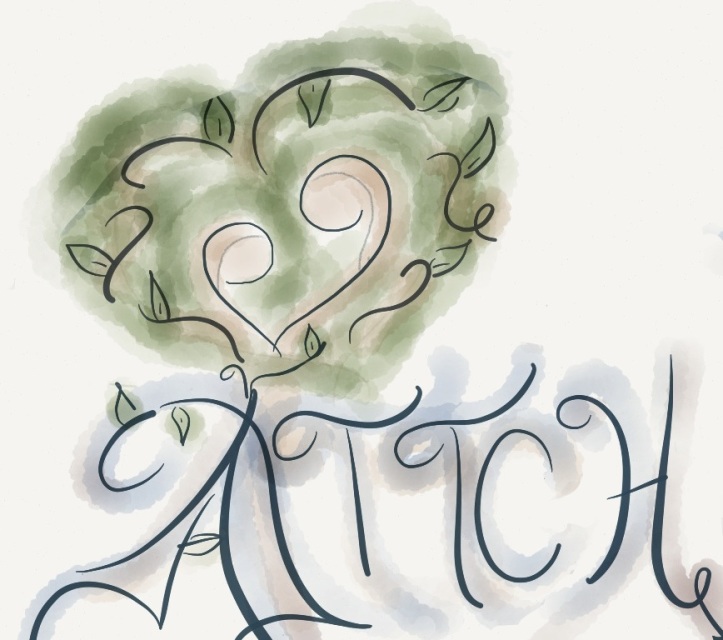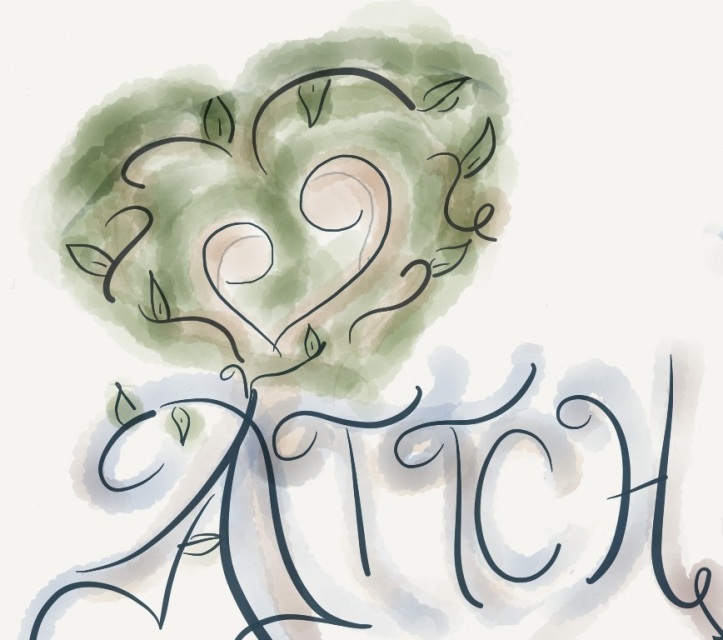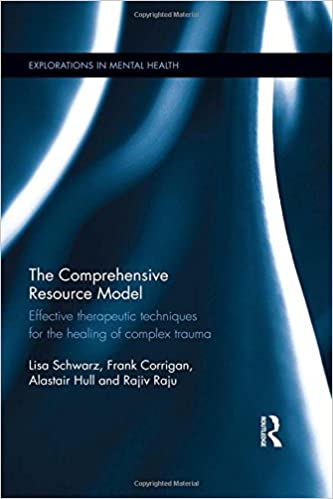-
About
- Trauma Certification
-
Upcoming Events
>
- The Ultimate Architect- Implementing God’s Teachings to Heal Life’s Hurts and Hearts
- Trauma & Attachment Conference
- 2023 Lake Louise Immersive Trauma and Yoga Wellness Training Retreat
- Healing Trauma - Free Immersive Master Class
- UK Trauma & Attachment Certification Series
- Parenting Through a Trauma-Informed Lens
- Clinical Services Partners
- Clinical Consultation
- Professional Resources
- Contact
-
Trauma & Attachment Specialist Certification
- Trauma Certification
-
ITATM
>
- Certified Trauma Integration Practitioner (CTIP) Non-Clinical
- Certified Trauma Integration Clinician (CTIC) Clinical Stream
- Certified Trauma Providers >
- Certified Trauma Integration Facilitator (CTIF)
- Certified Trauma Integration Mentor (CTIM)
- Certified Trauma Informed Organization (CTIO)
- About Our Trainers
- Consultations
- Live Online Trainings
-
Recommended Resources
>
- BookList
- Essential Oils / Aromatherapy / Diffuser Jewellery
- Mindfulness Training with MUSE
- Emotional Regulation Links and Handouts
- Self-Compassion Art Journalling Program
- Attachment Informed Parenting Program
- Binaural Beats
- Training the Heart & Body
- Cool Calm Connected Parent Child Program
- Mindfulness and Meditation
- Racism Pandemic Resources
- Sensory Resources
- COVID Resources
- Blogs
- What People Are Saying About Our Certification Trainings
-
Custom Trainings
- Integrative Trauma & Attachment Treatment Model
- ITATM Customized Through an Indigenous Context
- ITATM Training Delivered in Arabic
- Trauma-Informed Primary Care
- LAMP Neurobiology of Trauma Training
- Attachment Informed Parenting - Training to implement manualized program
- Expressive Arts and Trauma Recovery
- Trauma Informed Youth Justice
- Working With Complex Aspects of Trauma
- Understanding Trauma’s Impact on Learning and Schools - Collaborating between Caregivers and Schools to Create an Effective Plan
- Trauma-Informed Child Welfare
- Sampling of Past Presentations >
- Distance Learning
2018 Trauma and Attachment Conference
Healing Complex Trauma Through Connection & Integration
The Attachment and Trauma Treatment Centre for Healing (ATTCH) is holding its 6th annual Trauma and Attachment Conference from March 19 - 23 at the Hilton Garden Inn, Niagara-on-the-Lake, Ontario, Canada. The conference schedule is as follows: 8:30 registration, 9:00 opening remarks and welcome and keynote speakers from 9:05 - 4:30.
Join us to learn about leading approaches for treating trauma and promoting post-traumatic growth. This comprehensive conference will cover a range of topics such as:
Learn more about our speakers
Day 1 & 2 ~ March 19 & 20, 2018 Foundational Stream (Ideal for those who have not completed the below foundational training):
Lori Gill, MA, RP, CTS, Founder and Clinical Director of the Attachment and Trauma Treatment Centre for Healing
Day 1 Understanding the Foundations of Trauma and Attachment
Day 2 Phase-Based Clinical Applications to Promote Healing and Integration of Trauma and Attachment Dysregulation
Day 1 & 2 ~ March 19 & 20, 2018 Advanced Stream (Ideal for those who have completed the above foundational training):
Day 1 Sarah Schlote, MA, RP, CCC, SEP Working With Parts: Healing the Child(ren) Within
Day 2 AM Dr. Paul Frewen, Mind-Brain Interventions for Trauma-related Disorders. Co-Author of Healing the Traumatized Self: Consciousness Neuroscience Treatment
Day 2 PM Sean Robb, Ph.D Candidate & Kaleigh Alkenbrack, MD (GP-Psychotherapist) The Nuances on the combination of PTSD and mild-Traumatic Brain Injury (mTBI): Why this comorbid population is particularly challenging to treat.
Day 3 ~ March 21, 2018 Stephen J. Terrell, PsyD, SEP, Austin Attachment and Counseling Center, Co-Author of Nurturing Resilience: Helping Clients Move Forward from Developmental Trauma--An Integrative Somatic Approach, Co-Creator of Somatic Resilience and Regulation: Early Trauma and Creator of Transforming the Experience-Based Brain: A Somatic Model of Developmental Trauma
Day 4 ~ March 22, 2018 Carmen Richardson MSW, RSW, RCAT, REAT, Prairie Institute of Expressive Arts Therapy, Author of Expressive Arts Therapy for Traumatized Children and Adolescents: A Four-Phase Model
Day 5 ~ March 23, 2018 Lisa Schwarz, M.Ed,Creator of Comprehensive Resource Model
Registration is now open! Click here to register!
Paper registration form is linked here as well.
Multiple registration options available.
See below for full descriptions
Days 1 & 2 - March 19 & 20: Day 1 Understanding the Foundations of Trauma and Attachment & Day 2 Phase-Based Clinical Applications to Promote Healing and Integration of Trauma and Attachment Dysregulation with Lori Gill, Founder and Lead Trauma Therapist, Attachment and Trauma Treatment Centre for Healing
The fields of attachment and trauma research and intervention are growing rapidly. It is apparent that this is an area all clinicians can benefit from training in as it crosses all sectors and populations in some manner. However, we know that it can be difficult to keep up with all of the readings and resources. As this is our area of specialization, let us share what we have learned through our literature and research reviews and what we have effectively put into practice with you in an engaging and practical manner. This comprehensive two-day training will provide insight into current trauma, attachment, and neuroscience research ensuring an understanding of critical information and best practice strategies for working with trauma. This training will also help you to enhance your clinical skills and learn how you can add trauma regulation and attachment healing strategies to your repertoire.
Day 2 will focus on putting it into practice. Through this training participants will learn how to make historical connections, complete initial assessments, and formulate trauma-informed treatment planning. Participants will learn about phase-based treatment of complex trauma and review of best practice and evidence-based approaches will also be experienced.
Upon completion of training participants will have a strong understanding of:
Trauma-Informed Care
The Neuroscience of Trauma, Addictions, Mental Health and Violence
Sensory Regulation
Boundaries, Self-Compassion, and Healthy Relationships
Both days will be rich with research, practical examples, case studies, experiential activities, and opportunities for self-reflection.
Day 1 - March 19, 9-4:30 Advanced Clinical Stream Sarah Schlote MA, RP, CCC, SEP
Course Description: Working With Parts: Healing the Child(ren) Within
This workshop provides an introduction to understanding how trauma can result in varying degrees of dissociation and fragmentation of one’s inner experience. Drawing elements from different parts work / ego state models such as structural dissociation, transactional analysis, internal family systems, and others, the presentation will introduce:
Day 2 AM 9-12 - March 20 Advanced Clinical Stream
Dr. Paul Frewen
Course Description: Mind-Brain Interventions for Trauma-related Disorders
This workshop will overview emerging mind-brain interventions for trauma-related disorders, focusing on neurofeedback and brain stimulation modalities. A clinical rationale for modulation of states of consciousness in order to facilitate psychotherapy will also be developed.
Day 2 PM 1-4:30 - March 20 Advanced Clinical Stream
Sean Robb, Ph.D Candidate & Kaleigh Alkenbrack, MD (GP-Psychotherapist)
Course Description: The Nuances on the combination of PTSD and mild-Traumatic Brain Injury (mTBI): Why this comorbid population is particularly challenging to treat.
The combination of Post-Traumatic Stress Disorder (PTSD) and mild Traumatic Brain Injury (mTBI) is increasingly being recognized as a particularly challenging comorbidity to effectively treat. This workshop will review and discuss the neuroscience, medical, and psychotherapy literatures that provide insight into the assessment, management, and treatment of this subpopulation. Of particular note is the contrasting state of neurophysiology, with PTSD often being a disorder of hyperarousal and hyperattentionality, and the neuropsychological, neuroemotional, and neurobehavioural outcomes of mTBI are thought to be a reflection of physiological dampening and inattention, posing two seemingly opposite states of neurophysiological functioning. Moreover, disentangling the etiology of particular symptoms in an individual is increasingly more challenging, with greater recognition within the literature of the overlapping distributions of symptoms between PTSD, TBI, and post-concussive symptom (PCS) reporting. This workshop will review several clinical case examples that highlight strategies for disentangling the etiology of these symptoms, discuss various treatment challenges, and provide guidance on approaches to increase clinical efficacy of both pharmacological and psychotherapy treatment interventions.
Day 3 - March 21 Stephen J. Terrell, PsyD, SEP, Austin Attachment and Counseling Center, Co-Author of Nurturing Resilience: Helping Clients Move Forward from Developmental Trauma--An Integrative Somatic Approach, Co-Creator of Somatic Resilience and Regulation: Early Trauma and Creator of Transforming the Experience-Based Brain: A Somatic Model of Developmental Trauma
Course Description: Transforming Resilience and Regulation Through Somatic Touch
This workshop is about the understanding of Developmental Trauma and the effects it has on the nervous system. We will explore ways of applying Somatic Touch through this understanding of the body and nervous system working from the idea that the client probably has little to no memory of the event but their bodies contain the memory. These early ruptures to the system directly affects a person's resilience and their ability to grow, learn, and experience relationships without stress. This approach is directed at infants, children, adolescents, as well as adults. The approach is a blend of Somatic Experiencing, Attachment Theory, Early Developmental Trauma, Polyvagal Theory, and Somatic Resilience and Regulation. Classroom will be a combination of lectures, Q&A, and experiential exercises .
Course Outline
-Trauma and the Body
-Trauma and the Polyvagal System
-Trauma and Somatic Touch
-Trauma - Agreement vs Disagreement
Somatic Resilience and Regulation is a somatic approach to supporting recovery from developmental trauma developed by Kathy Kain and Stephen Terrell. The approach focuses on understanding the effects of trauma during early development. The process and techniques of working with both children and adults, including recognizing developmental trauma in its adult disguises. By understanding how trauma affect the developing child, we can better understand our adult clients symptoms of early trauma and be more effective in our work with them.
Day 4 - March 22 Carmen Richardson MSW, RSW, RCAT, REAT, Prairie Institute of Expressive Arts Therapy, Author of Expressive Arts Therapy for Traumatized Children and Adolescents: A Four-Phase Model
Course Description: Expressive Arts Therapy: A Four-Phase Model
This workshop is based on a structured, four-phase expressive arts therapy (EXA) model of trauma treatment for children and adolescents. This treatment approach is grounded in attachment theory, neuroscience, the psychophysiology of trauma, expressive arts therapy and CBT. EXA, as a resource-oriented and body-focused therapy, invites clients to a sensory experience, which is central to treating key trauma reactions which promotes self-regulation. Includes lecture, viewing client art, and several hands on experiential exercises.
Course Outline
Trauma Review
-Trauma & the Brain
-Trauma & Memory
-Trauma & the Body
What is Expressive Arts Therapy?
-Why Expressive Arts Fits for Trauma Treatment
A Resource-Oriented Perspective
The Four-Phase Model
Phase One - Initial Assessment
Phase Two - Cultivating Safety and Resources
Phase Three - Trauma Processing
Phase Four - Reclaiming, Reframing, Repairing, and Reorienting
Learning Objectives
1. Explore a hands-on, safe, structured approach to treating the effects of trauma.
2. Discuss structured, arts-based sensory interventions to effectively treat key trauma reactions in order to promote self regulation.
3. Apply varied expressive arts modalities with clear directions on how to implement these modalities at different phases of treatment.
4. Conduct a thoughtful analysis of ways for introducing expressive arts to clients, engaging clients with their art, being present to the art that is created, and working within a particular session structure that guides the treatment process.
5. Examine the process of using body-focused and sensory-based language and skills in the process of trauma treatment.
Day 5 - March 23, 2018 Lisa Schwarz, M.Ed,Creator of Comprehensive Resource Model
Course Description: Comprehensive Resource Model
Healing from the impact of traumatic experiences requires that there is sufficient brain and body-based safety in order for survival terror and all painful/intolerable affects to be stepped into, felt fully, remembered/re-membered, and re-oriented toward so that transformation can occur. Full orientation toward profound grief, rage, shame, disgust, and terror allows for liberation of the truths of one’s life and facilitates integration of all aspects of all experience into the whole of one’s being, creating the ultimate connection to self as mind-body-spirit. The Comprehensive Resource Model (CRM) recognizes that the ability to stay fully present moment to moment during trauma processing is imperative to deep healing through attachment re-wiring. This is accomplished through the concurrent development of dormant healthy attachment neurobiology and thorough attachment trauma re-processing. This presentation is an introduction to CRM, a modality which clears attachment trauma/disruptions through the scaffolded development of internally-sourced neurobiological and neurochemical attachment resources. These attachment resources are the framework within which attachment trauma is healed; allowing for simultaneous re-processing, re-wiring and re-consolidation of attachment wounds from gestation to the present.
This workshop provides: the theoretical case conceptualization that is the foundation for clinical practice in the healing of attachment issues; an overview of the development and nested use of clinical resourcing interventions, and some basic resourcing skills that can be used immediately to aid in affective/somatic regulation during and between sessions.
Registration:
Please mail completed registration form to ATTCH, 95 Niagara Street St. Catharines, ON L2R 4L3 or fax to (905) 684-6217. Alternatively payment can be sent via online banking etransfer to [email protected] or online electronic registration is available via this link. Paper registration is available via this link. *Note an additional fee applies to online purchases to offset associated fees. There is no fee to complete an transfer through online banking.
Registration *Price is inclusive of morning and afternoon refreshment breaks and lunch on site
*Please note that the foundational stream Understanding the Foundations of Trauma and Attachment & Day 2 Phase-Based Clinical Applications to Promote Healing and Integration of Trauma and Attachment Dysregulation is a requirement for certification as a Trauma Specialist.
Learn more about accommodations.
Join us to learn about leading approaches for treating trauma and promoting post-traumatic growth. This comprehensive conference will cover a range of topics such as:
- Understanding the foundations (including neurological, social, physiological, and psychological implications of trauma and attachment dysregulation)
- Phase-based clinical applications to promote healing and integration of trauma and attachment dysregulation
- Mind-brain based interventions for treating trauma-related disorders
- Challenges and strategies for working with mTBI and PTSD
- Attachment-focused somatic model for treating trauma
- Expressive arts for treating trauma: A four-phase model
- Comprehensive Resources Model: Healing attachment trauma through re-processing, re-wiring and re-consolidation of attachment wounds from gestation to the present
Learn more about our speakers
Day 1 & 2 ~ March 19 & 20, 2018 Foundational Stream (Ideal for those who have not completed the below foundational training):
Lori Gill, MA, RP, CTS, Founder and Clinical Director of the Attachment and Trauma Treatment Centre for Healing
Day 1 Understanding the Foundations of Trauma and Attachment
Day 2 Phase-Based Clinical Applications to Promote Healing and Integration of Trauma and Attachment Dysregulation
Day 1 & 2 ~ March 19 & 20, 2018 Advanced Stream (Ideal for those who have completed the above foundational training):
Day 1 Sarah Schlote, MA, RP, CCC, SEP Working With Parts: Healing the Child(ren) Within
Day 2 AM Dr. Paul Frewen, Mind-Brain Interventions for Trauma-related Disorders. Co-Author of Healing the Traumatized Self: Consciousness Neuroscience Treatment
Day 2 PM Sean Robb, Ph.D Candidate & Kaleigh Alkenbrack, MD (GP-Psychotherapist) The Nuances on the combination of PTSD and mild-Traumatic Brain Injury (mTBI): Why this comorbid population is particularly challenging to treat.
Day 3 ~ March 21, 2018 Stephen J. Terrell, PsyD, SEP, Austin Attachment and Counseling Center, Co-Author of Nurturing Resilience: Helping Clients Move Forward from Developmental Trauma--An Integrative Somatic Approach, Co-Creator of Somatic Resilience and Regulation: Early Trauma and Creator of Transforming the Experience-Based Brain: A Somatic Model of Developmental Trauma
Day 4 ~ March 22, 2018 Carmen Richardson MSW, RSW, RCAT, REAT, Prairie Institute of Expressive Arts Therapy, Author of Expressive Arts Therapy for Traumatized Children and Adolescents: A Four-Phase Model
Day 5 ~ March 23, 2018 Lisa Schwarz, M.Ed,Creator of Comprehensive Resource Model
Registration is now open! Click here to register!
Paper registration form is linked here as well.
Multiple registration options available.
See below for full descriptions
Days 1 & 2 - March 19 & 20: Day 1 Understanding the Foundations of Trauma and Attachment & Day 2 Phase-Based Clinical Applications to Promote Healing and Integration of Trauma and Attachment Dysregulation with Lori Gill, Founder and Lead Trauma Therapist, Attachment and Trauma Treatment Centre for Healing
The fields of attachment and trauma research and intervention are growing rapidly. It is apparent that this is an area all clinicians can benefit from training in as it crosses all sectors and populations in some manner. However, we know that it can be difficult to keep up with all of the readings and resources. As this is our area of specialization, let us share what we have learned through our literature and research reviews and what we have effectively put into practice with you in an engaging and practical manner. This comprehensive two-day training will provide insight into current trauma, attachment, and neuroscience research ensuring an understanding of critical information and best practice strategies for working with trauma. This training will also help you to enhance your clinical skills and learn how you can add trauma regulation and attachment healing strategies to your repertoire.
Day 2 will focus on putting it into practice. Through this training participants will learn how to make historical connections, complete initial assessments, and formulate trauma-informed treatment planning. Participants will learn about phase-based treatment of complex trauma and review of best practice and evidence-based approaches will also be experienced.
Upon completion of training participants will have a strong understanding of:
Trauma-Informed Care
- What it means to be trauma-informed at an organization, service system and societal level
- Core principles, guiding values and common language of trauma-informed care
- Understanding what is helpful vs. what is harmful
- The difference between trauma-informed and trauma-specific services
- Understanding top-down, bottom-up and integrative trauma treatment modalities
The Neuroscience of Trauma, Addictions, Mental Health and Violence
- How stress and trauma affect the brain, body and behaviour
- The role of attachment in self-regulation and the capacity for relationship
- The impact of attachment injuries on child development and adult health outcomes
- Attachment dynamics in health care and human services work
- The connection between trauma, addictions and violence
- The importance of worker self-regulation and self-care in providing attunement, therapeutic presence and co-regulation for clients and in mitigating the effects of compassion fatigue and vicarious trauma
Sensory Regulation
- Why trauma is a sensory experience
- Recognizing the signs of emotional and physical dysregulation
- Integration and how this relates to emotional and physiological regulation
- The use of sensory approaches to promote regulation and integration
Boundaries, Self-Compassion, and Healthy Relationships
- How trauma disrupts our boundaries and how we can learn to establish healthy boundaries
- Addressing unmet needs
- Shifting from false refuges to those that provide effective regulation
- The importance of self-compassion for forming and maintaining healthy relationships
- Differentiating intimacy from abuse
Both days will be rich with research, practical examples, case studies, experiential activities, and opportunities for self-reflection.
Day 1 - March 19, 9-4:30 Advanced Clinical Stream Sarah Schlote MA, RP, CCC, SEP
Course Description: Working With Parts: Healing the Child(ren) Within
This workshop provides an introduction to understanding how trauma can result in varying degrees of dissociation and fragmentation of one’s inner experience. Drawing elements from different parts work / ego state models such as structural dissociation, transactional analysis, internal family systems, and others, the presentation will introduce:
- Helpful frameworks through which to help clients conceptualize their inner experience
- The self-protective roles of different parts or ego states, including shame
- Tools to support relationship with the fragmented parts of one’s inner world to foster greater integration, inner coherence, regulation and the capacity for self-soothing
- Specific interactive exercises for working with ego states / parts involving imagery, somatics, attachment, art, journaling and self-compassion
- Resources for further learning
Day 2 AM 9-12 - March 20 Advanced Clinical Stream
Dr. Paul Frewen
Course Description: Mind-Brain Interventions for Trauma-related Disorders
This workshop will overview emerging mind-brain interventions for trauma-related disorders, focusing on neurofeedback and brain stimulation modalities. A clinical rationale for modulation of states of consciousness in order to facilitate psychotherapy will also be developed.
Day 2 PM 1-4:30 - March 20 Advanced Clinical Stream
Sean Robb, Ph.D Candidate & Kaleigh Alkenbrack, MD (GP-Psychotherapist)
Course Description: The Nuances on the combination of PTSD and mild-Traumatic Brain Injury (mTBI): Why this comorbid population is particularly challenging to treat.
The combination of Post-Traumatic Stress Disorder (PTSD) and mild Traumatic Brain Injury (mTBI) is increasingly being recognized as a particularly challenging comorbidity to effectively treat. This workshop will review and discuss the neuroscience, medical, and psychotherapy literatures that provide insight into the assessment, management, and treatment of this subpopulation. Of particular note is the contrasting state of neurophysiology, with PTSD often being a disorder of hyperarousal and hyperattentionality, and the neuropsychological, neuroemotional, and neurobehavioural outcomes of mTBI are thought to be a reflection of physiological dampening and inattention, posing two seemingly opposite states of neurophysiological functioning. Moreover, disentangling the etiology of particular symptoms in an individual is increasingly more challenging, with greater recognition within the literature of the overlapping distributions of symptoms between PTSD, TBI, and post-concussive symptom (PCS) reporting. This workshop will review several clinical case examples that highlight strategies for disentangling the etiology of these symptoms, discuss various treatment challenges, and provide guidance on approaches to increase clinical efficacy of both pharmacological and psychotherapy treatment interventions.
Day 3 - March 21 Stephen J. Terrell, PsyD, SEP, Austin Attachment and Counseling Center, Co-Author of Nurturing Resilience: Helping Clients Move Forward from Developmental Trauma--An Integrative Somatic Approach, Co-Creator of Somatic Resilience and Regulation: Early Trauma and Creator of Transforming the Experience-Based Brain: A Somatic Model of Developmental Trauma
Course Description: Transforming Resilience and Regulation Through Somatic Touch
This workshop is about the understanding of Developmental Trauma and the effects it has on the nervous system. We will explore ways of applying Somatic Touch through this understanding of the body and nervous system working from the idea that the client probably has little to no memory of the event but their bodies contain the memory. These early ruptures to the system directly affects a person's resilience and their ability to grow, learn, and experience relationships without stress. This approach is directed at infants, children, adolescents, as well as adults. The approach is a blend of Somatic Experiencing, Attachment Theory, Early Developmental Trauma, Polyvagal Theory, and Somatic Resilience and Regulation. Classroom will be a combination of lectures, Q&A, and experiential exercises .
Course Outline
-Trauma and the Body
-Trauma and the Polyvagal System
-Trauma and Somatic Touch
-Trauma - Agreement vs Disagreement
Somatic Resilience and Regulation is a somatic approach to supporting recovery from developmental trauma developed by Kathy Kain and Stephen Terrell. The approach focuses on understanding the effects of trauma during early development. The process and techniques of working with both children and adults, including recognizing developmental trauma in its adult disguises. By understanding how trauma affect the developing child, we can better understand our adult clients symptoms of early trauma and be more effective in our work with them.
Day 4 - March 22 Carmen Richardson MSW, RSW, RCAT, REAT, Prairie Institute of Expressive Arts Therapy, Author of Expressive Arts Therapy for Traumatized Children and Adolescents: A Four-Phase Model
Course Description: Expressive Arts Therapy: A Four-Phase Model
This workshop is based on a structured, four-phase expressive arts therapy (EXA) model of trauma treatment for children and adolescents. This treatment approach is grounded in attachment theory, neuroscience, the psychophysiology of trauma, expressive arts therapy and CBT. EXA, as a resource-oriented and body-focused therapy, invites clients to a sensory experience, which is central to treating key trauma reactions which promotes self-regulation. Includes lecture, viewing client art, and several hands on experiential exercises.
Course Outline
Trauma Review
-Trauma & the Brain
-Trauma & Memory
-Trauma & the Body
What is Expressive Arts Therapy?
-Why Expressive Arts Fits for Trauma Treatment
A Resource-Oriented Perspective
The Four-Phase Model
Phase One - Initial Assessment
Phase Two - Cultivating Safety and Resources
Phase Three - Trauma Processing
Phase Four - Reclaiming, Reframing, Repairing, and Reorienting
Learning Objectives
1. Explore a hands-on, safe, structured approach to treating the effects of trauma.
2. Discuss structured, arts-based sensory interventions to effectively treat key trauma reactions in order to promote self regulation.
3. Apply varied expressive arts modalities with clear directions on how to implement these modalities at different phases of treatment.
4. Conduct a thoughtful analysis of ways for introducing expressive arts to clients, engaging clients with their art, being present to the art that is created, and working within a particular session structure that guides the treatment process.
5. Examine the process of using body-focused and sensory-based language and skills in the process of trauma treatment.
Day 5 - March 23, 2018 Lisa Schwarz, M.Ed,Creator of Comprehensive Resource Model
Course Description: Comprehensive Resource Model
Healing from the impact of traumatic experiences requires that there is sufficient brain and body-based safety in order for survival terror and all painful/intolerable affects to be stepped into, felt fully, remembered/re-membered, and re-oriented toward so that transformation can occur. Full orientation toward profound grief, rage, shame, disgust, and terror allows for liberation of the truths of one’s life and facilitates integration of all aspects of all experience into the whole of one’s being, creating the ultimate connection to self as mind-body-spirit. The Comprehensive Resource Model (CRM) recognizes that the ability to stay fully present moment to moment during trauma processing is imperative to deep healing through attachment re-wiring. This is accomplished through the concurrent development of dormant healthy attachment neurobiology and thorough attachment trauma re-processing. This presentation is an introduction to CRM, a modality which clears attachment trauma/disruptions through the scaffolded development of internally-sourced neurobiological and neurochemical attachment resources. These attachment resources are the framework within which attachment trauma is healed; allowing for simultaneous re-processing, re-wiring and re-consolidation of attachment wounds from gestation to the present.
This workshop provides: the theoretical case conceptualization that is the foundation for clinical practice in the healing of attachment issues; an overview of the development and nested use of clinical resourcing interventions, and some basic resourcing skills that can be used immediately to aid in affective/somatic regulation during and between sessions.
Registration:
Please mail completed registration form to ATTCH, 95 Niagara Street St. Catharines, ON L2R 4L3 or fax to (905) 684-6217. Alternatively payment can be sent via online banking etransfer to [email protected] or online electronic registration is available via this link. Paper registration is available via this link. *Note an additional fee applies to online purchases to offset associated fees. There is no fee to complete an transfer through online banking.
Registration *Price is inclusive of morning and afternoon refreshment breaks and lunch on site
- Full 5-Day conference Early registration rate: $700+ taxes. After February 15, Regular Rate: $800.00 + taxes (Specify foundational or advanced stream)
- Day 1 & 2 Foundational Stream Early registration rate: $360.00 + taxes. After February 15, $460.00 + taxes
- Day 1 & 2 Advanced Stream (recommended for those who have completed core training above) Early registration rate: $360.00 + taxes. After February 15 $460.00 + taxes
- Day 3 only Early registration rate: $250.00 + taxes. After February 15, Regular Rate: $300.00 + taxes
- Day 4 only Early registration rate: $250.00 + taxes. February 15, Regular Rate: $300.00 + taxes
- Day 5 only Early registration rate: $250.00 + taxes. February 15, Regular Rate: $300.00 + taxes
*Please note that the foundational stream Understanding the Foundations of Trauma and Attachment & Day 2 Phase-Based Clinical Applications to Promote Healing and Integration of Trauma and Attachment Dysregulation is a requirement for certification as a Trauma Specialist.
Learn more about accommodations.
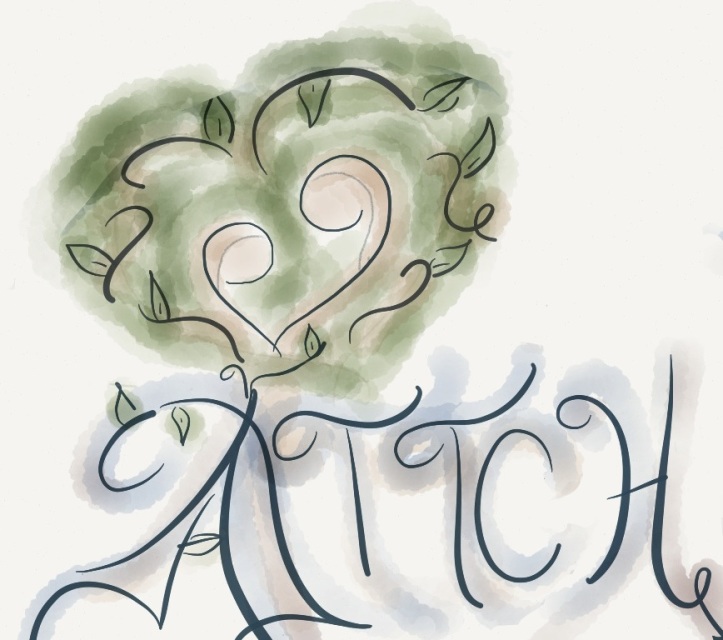
Full 5-Day Conference - 2019 Trauma and Attachment Conference - Advanced Stream (recommended for those who have completed foundational training)
CA$825.00
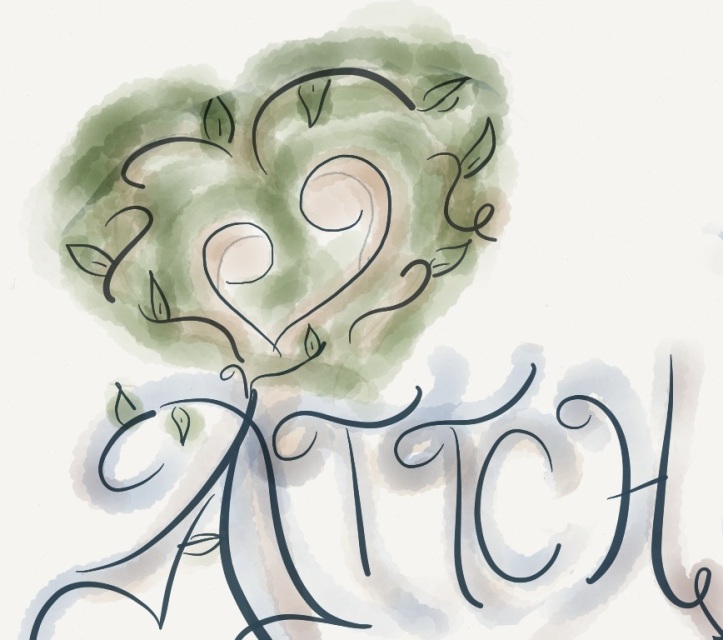
Day 1 & Day 2 - Foundational Stream - Understanding the Foundations of Trauma and Attachment & Phase-Based Clinical Applications to Promote Healing and Integration of Trauma and Attachment Dysregulation with Lori Gill
CA$475.00
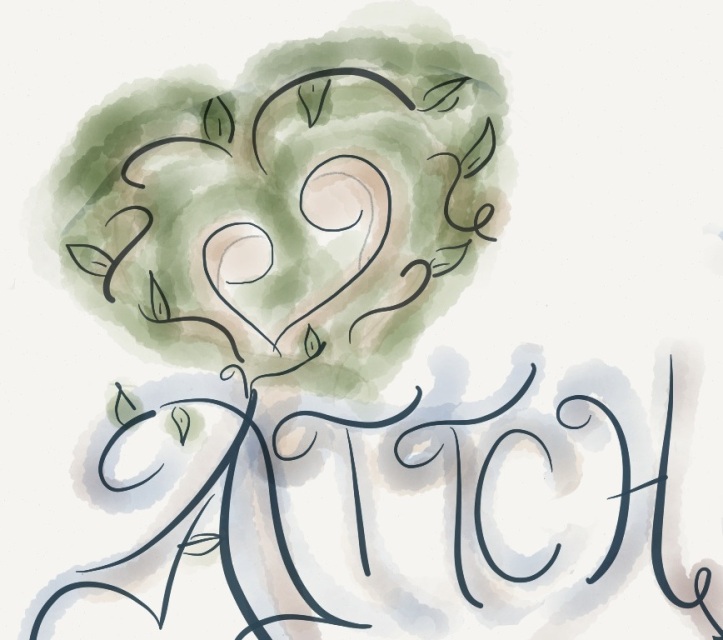
Day 4 only, March 22, 2018 Carmen Richardson Expressive Arts Therapy for Traumatized Children and Adolescents: A Four-Phase Model
CA$350.30
|
© ATTACHMENT AND TRAUMA TREATMENT CENTRE FOR HEALING (ATTCH) INC.
ALL RIGHTS RESERVED. Website: www.attch.org Email: [email protected] Phone (289) 968-9619 Fax (905) 684-6217 |
-
About
- Trauma Certification
-
Upcoming Events
>
- The Ultimate Architect- Implementing God’s Teachings to Heal Life’s Hurts and Hearts
- Trauma & Attachment Conference
- 2023 Lake Louise Immersive Trauma and Yoga Wellness Training Retreat
- Healing Trauma - Free Immersive Master Class
- UK Trauma & Attachment Certification Series
- Parenting Through a Trauma-Informed Lens
- Clinical Services Partners
- Clinical Consultation
- Professional Resources
- Contact
-
Trauma & Attachment Specialist Certification
- Trauma Certification
-
ITATM
>
- Certified Trauma Integration Practitioner (CTIP) Non-Clinical
- Certified Trauma Integration Clinician (CTIC) Clinical Stream
- Certified Trauma Providers >
- Certified Trauma Integration Facilitator (CTIF)
- Certified Trauma Integration Mentor (CTIM)
- Certified Trauma Informed Organization (CTIO)
- About Our Trainers
- Consultations
- Live Online Trainings
-
Recommended Resources
>
- BookList
- Essential Oils / Aromatherapy / Diffuser Jewellery
- Mindfulness Training with MUSE
- Emotional Regulation Links and Handouts
- Self-Compassion Art Journalling Program
- Attachment Informed Parenting Program
- Binaural Beats
- Training the Heart & Body
- Cool Calm Connected Parent Child Program
- Mindfulness and Meditation
- Racism Pandemic Resources
- Sensory Resources
- COVID Resources
- Blogs
- What People Are Saying About Our Certification Trainings
-
Custom Trainings
- Integrative Trauma & Attachment Treatment Model
- ITATM Customized Through an Indigenous Context
- ITATM Training Delivered in Arabic
- Trauma-Informed Primary Care
- LAMP Neurobiology of Trauma Training
- Attachment Informed Parenting - Training to implement manualized program
- Expressive Arts and Trauma Recovery
- Trauma Informed Youth Justice
- Working With Complex Aspects of Trauma
- Understanding Trauma’s Impact on Learning and Schools - Collaborating between Caregivers and Schools to Create an Effective Plan
- Trauma-Informed Child Welfare
- Sampling of Past Presentations >
- Distance Learning

